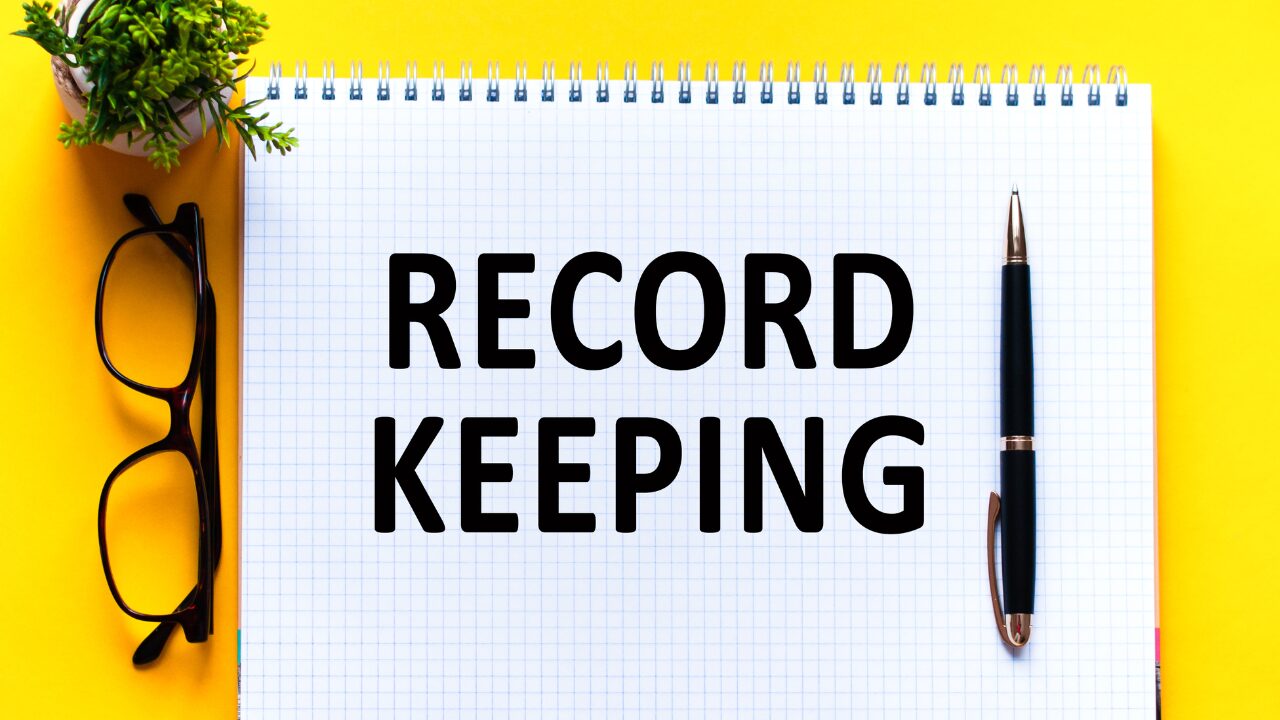
With 4.2 billion social media users, 500 million passion economy users, and nearly 200 million creators, the content creator landscape is skyrocketing toward growth and expansion. Further, 52% of creators spending less than 10 hours a week make $50K-$100K a year.
But with great success comes tax season, and the tax landscape can seem complex for content creators. Understanding the intricacies of tax filing is crucial for maximizing your deductions and ensuring compliance with the law.
Worry not!
This guide will demystify tax filing for content creators, helping you maximize your deductions and minimize your tax burden as a content creator.
Understanding Your Tax Obligations as a Content Creator
Content creators in the US are considered self-employed for tax purposes. This means all income generated through their creative endeavors is taxable. This includes revenue from advertisements (YouTube or social media sponsorships), brand deals, affiliate marketing, sales of digital products (like ebooks or online courses), and any client fees for creating content.
When it comes to filing taxes, content creators will likely need to submit a Schedule C form alongside their personal tax return. This form helps report both income and expenses specifically related to their content creation activities (essentially their business). Depending on their income level and chosen business structure, additional forms might be required.
There are some tax advantages to consider. If a content creator operates as a Limited Liability Company (LLC), they benefit from pass-through taxation.
This eliminates double taxation (where both the corporation and owner are taxed) by allowing business profits or losses to “pass through” to the creator’s personal tax return. Additionally, content creators can deduct many ordinary and necessary business expenses from their content creation income.
Examples include equipment (cameras, microphones, computers), software subscriptions (editing software, website hosting), marketing and advertising costs, travel expenses related to content creation, and even office supplies if they have a dedicated workspace.
However, there are some critical considerations. Content creators who expect to owe more than $1,000 in taxes might need to make estimated tax payments throughout the year to avoid penalties.
Additionally, they are responsible for self-employment tax, which covers Social Security and Medicare contributions typically covered by employers.
Finally, maintaining clear and detailed records of income and expenses is crucial for accurate tax filing and claiming all available deductions.
Hence, consulting a qualified tax professional who is familiar with content creator taxation can offer valuable guidance on the best filing strategies can ensure maximizing deductions while minimizing tax burden.
Identifying the Different Types of Income for Tax Purposes
Understanding your income sources is crucial for accurate tax filing. Here’s a breakdown of common income streams for content creators:
- Advertising Revenue: Earned through platforms like YouTube or display ads on your website.
- Affiliate Marketing: Commissions earned from promoting other companies’ products or services.
- Sponsorships: Payments received for promoting a brand in your content.
- Sales of Digital Products: Revenue from selling ebooks, online courses, or other downloadable content.
- Donations and Tips: While not always consistent, these contributions from your audience may be considered taxable income.
Relevant Tax Forms for Content Creators
Tax forms can feel like cryptic language, especially when you are operating your business from a different geography. Here is a quick walkthrough of the various essential forms you’ll likely encounter/need for filing taxes:
Form 1040
This is the foundation – the standard US tax return form used by most individuals, including self-employed content creators. It captures your overall income and deductions, ultimately determining your tax liability.
Schedule C
This is the business tax form, by which you’ll report all your self-employment income (ad revenue, sponsorships, affiliate commissions, etc.) and deduct your business expenses (software, equipment, internet costs, etc.). This helps calculate your net business profit or loss, which then gets factored into your overall tax picture on Form 1040.
Schedule SE
This form calculates your self-employment taxes, which cover Social Security and Medicare contributions typically withheld from employee paychecks. As a self-employed individual, you’re responsible for paying the employer and employee portions of these taxes.
Form 1099-NEC
You might receive this form from companies that paid you $600 or more for your content creation services during the year. This form simplifies reporting your income from these sources on your tax return.
Form 8832
If you operate your content creation business as an LLC, you’ll likely use this form to elect how your business is taxed.
Remember: This is not an exhaustive list; your specific situation might require additional forms.
The complexity can increase based on factors like:
- Business Structure: Are you a sole proprietor, LLC, or another entity? This impacts tax filing requirements.
- Income Sources: Do you have income from overseas sources or investments? These might require additional reporting.
- State and Local Taxes: Certain states and localities may have additional tax filing requirements for self-employed individuals.
Don’t hesitate to consult a tax professional to ensure you use the correct forms and maximize your deductions.
They can provide personalized guidance based on your unique circumstances and income sources. Remember, a little planning goes a long way in ensuring a smooth and stress-free tax season!
What Qualifies as Deductible Expenses?
The good news is that the IRS allows content creators to deduct many business-related expenses. This reduces your taxable income, ultimately lowering your tax bill.
Common deductible expenses for content creators include:
- Home Office: A portion of your home can be claimed if used regularly and exclusively for your content creation business.
- Equipment and Software: Cameras, editing software, and other tools used primarily for content creation can be deducted.
- Internet and Phone: The portion of your internet and phone bills used for business purposes can be deducted.
- Travel and Meal Expenses: Travel-related content creation (conferences, networking events) and meals purchased while working on your business might be deductible, with limitations.
- Marketing and Promotion: Costs associated with promoting your content and brand, like website hosting or social media advertising.
Home Office Deductions
Working from home offers content creators flexibility but can also unlock tax benefits. Let’s delve into the home office deduction, a valuable way to reduce your taxable income.
Qualifying for the Deduction: Key Criteria to Meet
The dedicated space in your home must be used regularly and exclusively for your content creation business. This means it can’t be a spare bedroom you occasionally use to catch up on emails. It should be a defined workspace specifically for your content creation activities.
Further, this dedicated space must be your principal place of business. While you might occasionally work from coffee shops or co-working spaces, your home office should be your primary hub for content creation activities.
Simplified vs. Actual Expense Methods
The IRS offers two methods for claiming the home office deduction:
Simplified Option (Based on Square Footage): This option is easier. You calculate the deduction by multiplying the square footage of your dedicated workspace by a federally set rate (currently $5 per square foot, with a maximum deduction of $1,530 for tax year 2023).
For example, if your dedicated home office space is 100 square feet. Using the simplified method, your deduction would be 100 sq ft * $5/sq ft = $500.
Actual Expense Method (Requires Detailed Records): This method allows you to deduct a portion of your actual home expenses (rent, mortgage interest, utilities, etc.) based on the percentage of your home used for business purposes. While potentially offering a higher deduction, it requires meticulous record-keeping of all related expenses.
Choosing the Right Method
The simplified option is likely the most convenient and efficient approach for most content creators.
However, the actual expense method might offer a greater deduction if you have a large dedicated home office space and significant homeownership expenses. Consider consulting a tax professional to determine which method best suits your situation.
Remember:
Regardless of the method used, keep detailed records to support your claim during audit. Also, you can’t deduct the cost of improvements made specifically for your home office (like built-in bookshelves) in the year they are purchased. These might be depreciated over time.
Deducting Travel and Meal Expenses for Content Creation
Traveling for content creation purposes can be partially deductible, but specific rules apply. Here are some qualifying scenarios:
Industry Conferences and Events: Attending conferences, workshops, or other industry events relevant to your content creation niche can be deductible. Keep in mind that personal expenses during the trip (like sightseeing) generally wouldn’t qualify.
Brand Collaborations: Travel for brand collaborations or sponsored events may be deductible if the primary purpose is business-related.
Location Shoots: Travel for filming content on location (think travel vlogs or recipe shoots) might be partially deductible.
Key Points to Remember
You can deduct the reasonable cost of transportation (flights, trains, car rentals) and lodging related to your business travel.
With limitations, meals purchased while traveling for business purposes can be partially deducted. Generally, only the “business portion” of the meal qualifies (not lavish meals or entertainment).
Always keep detailed records of your travel expenses, including receipts, itineraries, and notes explaining the business purpose of the trip.
Meal Expenses
For example, travel expenses and meals purchased while working on your content creation business can be partially deductible.
If you buy lunch while editing a video or grab a coffee while brainstorming content ideas, those costs might be partially deductible. However, meals eaten at home wouldn’t typically qualify.
Generally, meals with clients are not deductible unless they are directly related to securing a new business opportunity or maintaining an existing client relationship.
Maximizing Deductions
Always maintain a clear distinction between personal meals and meals consumed while working. Also, keep receipts for all business-related meals, including the date, location, and business.
Equipment and Software Purchases: How to Deduct Correctly
As a content creator, your tools are your lifeblood. These purchases are crucial for creating engaging content, from high-quality cameras and editing software to microphones and lighting equipment.
But the good news is, that the IRS allows you to deduct the cost of these essential items, reducing your taxable income and putting more money back in your pocket.
Next, we take a deep dive into the options for deducting equipment and software purchases.
Section 179 Expense vs. Depreciation
The IRS offers two primary methods for claiming deductions on equipment and software:
Section 179 Expense
This allows you to deduct the entire cost of a qualifying business expense in the year it’s purchased. It’s a fantastic option for equipment and software under a certain dollar threshold (currently $800,000 for tax year 2023, subject to inflation adjustments).
For example, if you purchase a new editing software valued at $750. Using Section 179, you can deduct the entire $750 cost from your taxable income in the year of purchase.
Depreciation
This method allows you to spread the cost of an item over its life. Instead of deducting the entire cost upfront, you deduct a portion each year for a predetermined period (typically 3-7 years for equipment and software). This approach might be more beneficial for more expensive items exceeding the Section 179 limit.
Choosing the Right Method
The best method depends on the cost of the equipment or software.
Here are two PRO Tips:
Tip 1 – Use Section 179 if the item costs less than the current Section 179 expense deduction limit. This allows for a more immediate tax benefit.
Tip 2 – Choose Depreciation for items exceeding the Section 179 limit. This spreads the deduction over several years, potentially offering a tax benefit in each year of the depreciation schedule.
The Section 179 limit applies to the total cost of all qualifying business purchases made in a year, not each item. Regardless of the method chosen, maintain detailed records of your equipment and software purchases, including receipts, invoices, and specifications. This documentation is crucial in case of an audit.
Tax laws can be nuanced, and the optimal method might vary depending on your circumstances. Consider seeking guidance from a tax professional to ensure you’re maximizing your deductions and complying with tax regulations.
Keeping Records: The Key to Stress-Free Tax Filing
As a content creator, your income streams can be diverse, and expenses can accumulate quickly. Staying organized with receipts and invoices is the foundation for accurate tax filing and can save you a world of hassle come tax season.
Let’s explore some key strategies for keeping your financial records in order:
Keeping Receipts and Invoices
Develop a system for collecting receipts for all business-related expenses. This includes everything from camera equipment purchases to website hosting fees and receipts for travel and meals (when deductible). However, don’t just pile receipts in a drawer. Organize them by category (e.g., equipment, software, travel, marketing) for easier access later.
Consider scanning your paper receipts and storing them electronically in a secure folder. This creates a readily accessible digital backup and saves physical space.
Digital Tools to Simplify Your Tax Record-Keeping
While paper receipts have their place, technology offers a powerful alternative for managing your financial records.
Enter doola!
Here’s how doola simplifies your tax record-keeping:
Income Tracking
Easily record income from various sources like ad revenue, sponsorships, affiliate marketing, and sales of digital products.
Expense Categorization Made Easy
Track and categorize all your business expenses easily, ensuring you don’t miss a single deduction.
Automatic Receipt Storage
doola integrates seamlessly with popular receipt-scanning apps, allowing you to upload and categorize receipts electronically in a snap.
Effortless Tax Preparation
doola generates reports that categorize your income and expenses, making it easier for you or your tax professional to prepare your tax return.
By leveraging doola’s features, you can move away from the stress of manual record-keeping and embrace a streamlined approach to managing your finances. This lets you focus on what matters most – creating engaging content and growing your audience.
Remember: Meticulous records are crucial for maximizing deductions and ensuring a smooth tax filing experience. doola is here to be your partner in this process, simplifying record-keeping and empowering you to navigate tax season with confidence.
Handling Gifts, Sponsorships, and Free Products
As your content creation endeavors gain traction, you may encounter opportunities such as receiving gifts, securing sponsorships, and collaborating with brands for product placements.
Understanding the tax implications of these interactions is essential for ensuring compliance and maximizing deductions.
Let’s delve into the specific tax treatments associated with each scenario.
Reporting Income From Sponsorships and Affiliate Marketing
Sponsorships and affiliate marketing are fantastic ways to monetize your content. Sponsorships, or payments from brands in exchange for promoting their products or services in your content are taxable income. This includes cash payments and bartered services or products with a fair market value.
Likewise, commissions earned when your audience clicks on affiliate links and purchases products from another company’s website are taxable.
Hence, it is important to track all annual income from sponsorships and affiliate marketing. These earnings must be reported on your tax return as business income on Schedule C.
Maintain records of sponsorship agreements and document any payments or bartered items received.
Do You Need to Pay Taxes on Gifted Products?
Generally, gifts from friends and family are not considered taxable income. However, things get a bit more nuanced when it comes to content creation.
Products or services received for promotional purposes typically have a fair market value that may be taxable income.
For example, if a clothing brand sends you a dress to showcase in a video, the value of that dress might be considered taxable income. While uncommon, the IRS might consider gifts of exceptionally high value as taxable income.
Our Recommendation:
It’s always best to consult with a tax professional for specific guidance on gifts received for promotional purposes. They can help you determine the product’s fair market value and advise you on any potential tax obligations.
When to Seek Professional Help With Your Taxes
While this guide equips you with valuable knowledge about tax filing as a content creator, navigating the intricacies of tax law can sometimes feel overwhelming.
Here are some key factors to consider when deciding if seeking professional help might be beneficial:
Complexity of Your Tax Situation
Multiple Income Streams
Do you have income from various sources like ad revenue, sponsorships, affiliate marketing, and sales of digital products? Juggling multiple income streams can make tax filing more complex.
Business Structure
Are you a sole proprietor, an LLC, or another business entity? Different business structures have varying tax filing requirements.
Significant Expenses
Do you have substantial business-related expenses to track and deduct? A tax professional can help ensure you’re maximizing your deductions and minimizing your tax burden.
State and Local Taxes
Certain states and localities might have additional tax filing requirements for self-employed individuals. A professional can ensure you’re complying with all relevant regulations.
Seeking Peace of Mind and Efficiency
Some other situations that call for taking professional help include time constraints, audit concerns, and taxation law updates.
A tax professional can save you valuable time and ensure a smooth filing process. Likewise, if you have any concerns about triggering an audit, then a tax professional can advise on best practices for record-keeping and minimize the risk of an audit.
Tax laws and regulations can also change frequently. While keeping yourself updated with the taxation regulations and law updates can shift your focus from content creation, a professional stays up-to-date on these changes and ensures your filings comply with the latest rules.
Simplify Your Taxes With doola
While doola empowers you with the tools to manage your finances and income effectively, there are situations where seeking professional help might be the best course of action.
Need help keeping tax compliant? doola helps both US and international founders set up a US business and keep tax compliant.
Grab a free tax consultation with us!
FAQs
What are some deductible expenses that content creators can take advantage of to maximize their tax returns?
Content creators can deduct equipment, software, internet costs, office space (with limitations), travel for business purposes, and a portion of meals consumed while working.
How should content creators handle gifts, sponsorships, and free products in relation to their taxes?
Report sponsorships and affiliate income as business income. Promotion gifts might be taxable income based on fair market value. Consult a tax professional for specifics.
What are good tax tips for content creators?
Keep meticulous records of income and expenses. Track all sponsorships and affiliate earnings. Deduct common expenses like equipment, software, and a home office (with limitations). Consult a tax professional for complex situations.









